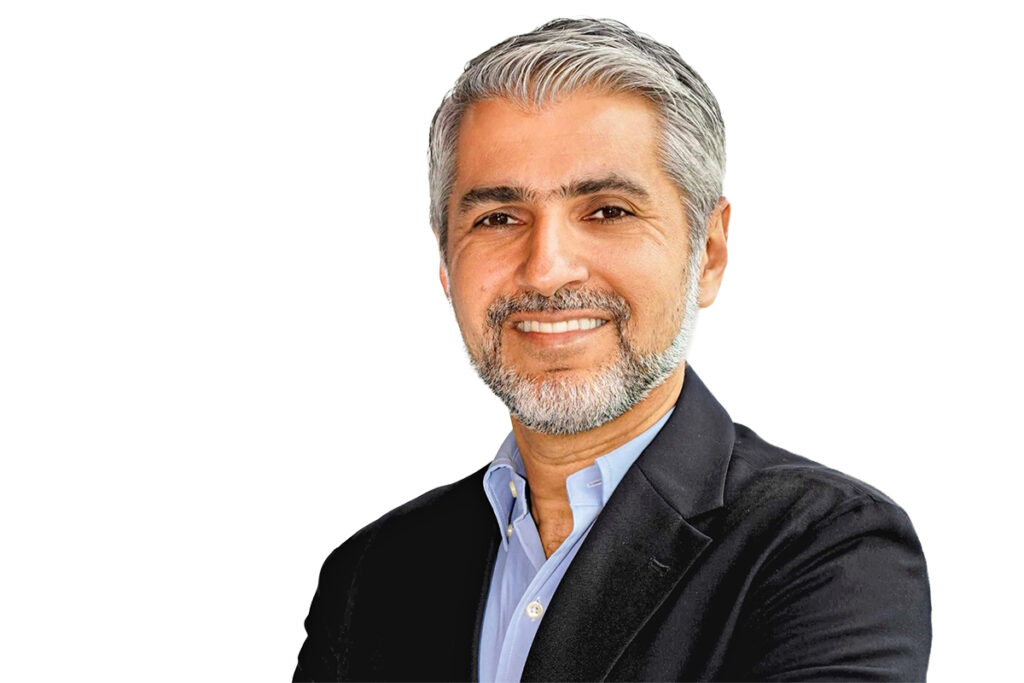This isn’t just a story of digital classifieds. It’s the story of a company quietly building the plumbing for economic activity across the region. Khan is not a headline-chaser. But sit down with him for 30 minutes and you begin to understand that Dubizzle Group isn’t trying to be visible – it’s trying to be essential. It is building digital infrastructure not for the next quarter, but for the next generation of regional commerce.
From listings to liquidity
Dubizzle began as a consumer platform. That much is still true. Millions of people come to it every month to search for homes, jobs, or cars. But increasingly, the platform is functioning more like infrastructure – one that enables small businesses to find liquidity, individuals to access mobility, and agents and brokers to operate at scale.
“We see ourselves as both,” Khan explains. “On the surface, we’re consumer platforms. But underneath, we’ve become infrastructure. We power liquidity for small businesses, enable housing mobility, and facilitate car ownership at scale.”
This framing changes everything. It explains why the group invests not just in listings, but in smart tools like TruEstimate™, which uses real-time data from the Dubai Land Department to offer dynamic property valuations. It explains why Bayut Academy – endorsed by the DLD – offers formalised training to real estate professionals. It explains why Dubizzle Group has grown from a digital marketplace to a kind of economic operating system.
It also reveals a more profound goal: to blur the line between discovery and decision-making. The listings are just the entry point. From there, Dubizzle wants to guide you through the entire journey – from information to transaction, from browser to buyer.
Local by design, not by accident
A large part of Dubizzle’s success comes down to what Khan calls “contextual optimisation.” The group owns multiple platforms – from Bayut and dubizzle in the UAE, to OLX and Hatla2ee in Egypt – but doesn’t simply replicate a model across geographies. Instead, the company standardises infrastructure, then adapts its go-to-market approach for each environment.
“It’s not about copy-paste,” Khan says. “It’s about contextually optimising our platforms without losing the efficiency that comes from standardisation.”
This isn’t just about localisation in a linguistic sense. It’s about reflecting culture in code, architecture in interface, and regulation in design. Dubizzle’s local-first strategy doesn’t slow it down; it sharpens its precision.
The result is a regional ecosystem that’s interoperable, but not identical. What works in Sharjah won’t necessarily work in Riyadh. The company’s agility lies in knowing the difference – and building accordingly.

Strategic, not opportunistic
In the last two years, Dubizzle Group has expanded aggressively – through acquisitions, partnerships, and organic growth. But Khan resists the idea that there’s a fixed formula behind these moves.
“There’s no single formula,” he says. “We’re constantly evaluating where we can add value, whether that’s through building something from the ground up, accelerating through acquisition, or collaborating with the right partners.”
Sometimes, it’s about speed. Other times, it’s about access to local insight. But always, it’s about “whether we can bring something differentiated to the table.”
This opportunistic flexibility has led to Dubizzle taking on roles as varied as data provider, education platform, and transaction enabler. It’s not building a monolith – it’s building a federation, calibrated to create value across every node of the ecosystem.
It’s a framework that reads more like venture capital than corporate strategy: back what moves the needle – sustainably and at scale. And then, make sure the infrastructure exists for others to grow with you.
Trust, by design
If there’s a thesis behind Dubizzle’s next chapter, it’s this: technology can’t replace trust, but it can accelerate it. In fiercely competitive markets like the UAE and Saudi Arabia, that’s the mission.
“We’re doubling down on initiatives that help users make smarter, faster, and safer decisions,” Khan says. Tools like TruBroker™, which highlights responsive agents, and TruBroker Stories, which provide socially validated content, are part of that strategy. But the aim goes deeper – into policy.
In Abu Dhabi, Dubizzle Group aligned with ADREC’s Madhmoun framework to improve listing authenticity. In Dubai, it built tools like TruEstimate™ in collaboration with DLD. These aren’t superficial partnerships – they’re part of a deeper institutional role the company is starting to play.
“It’s less of a shift and more of a natural evolution,” Khan says. “Our work with regulators is focused on building a more transparent, trusted ecosystem – not just for users, but for the broader industry.”
Trust isn’t a brand promise. It’s an operating principle. And Dubizzle’s model makes the case that in emerging markets, infrastructure and trust are two sides of the same coin.

Building at the speed of trust
Operating across markets like Egypt, Saudi Arabia and the UAE comes with structural challenges: different regulatory regimes, user behaviours, and stages of digital maturity. Dubizzle Group doesn’t flatten these differences – it designs around them.
“Each market has its own curve,” Khan explains. “Navigating this uniqueness requires deep local insight and regional coherence.”
That coherence is partly cultural – investing in on-the-ground talent – and partly technical. The company’s AI-powered valuation engine, for example, generated estimates for over 50 per cent of ready property transactions in Dubai in May. That kind of market penetration is rare, even for global platforms.
But scale brings its own risks. Bureaucracy. Complacency. Slower iteration. How does Dubizzle avoid that?
“We’ve built agile teams that are empowered to experiment and move fast,” Khan says. “It’s that balance between local insight and technical excellence that keeps us ahead.”
The agility isn’t accidental – it’s structural. Dubizzle has invested in product squads that operate like startups within the larger company, allowing innovation to emerge from the edge rather than the centre.
Looking toward 2030
If you ask Khan what success looks like in five years, he doesn’t talk in numbers. He talks in systems.
“I’d want Dubizzle Group to be recognised as the driving force behind a more trusted, tech-enabled digital economy in MENA,” he says. “A company that didn’t just scale, but helped scale others – consumers and partners alike.”
It’s here where Dubizzle’s mission becomes crystal clear. It isn’t trying to disrupt the economy. It’s trying to digitise it.
That’s what makes Dubizzle more than a listings site. It’s not out to own the transaction – it’s out to earn the ecosystem.
And in the Middle East’s expanding digital economy, that might just be the more powerful play.

